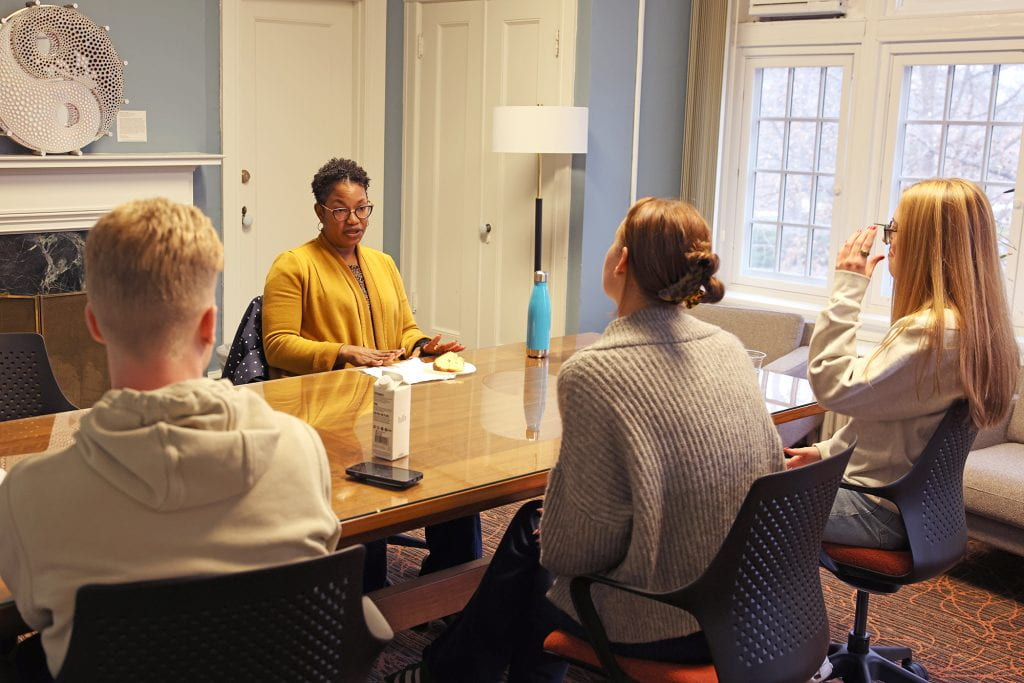
Donating to causes can be simple, but responsible philanthropy — especially when the goal is community improvement — requires building partnerships, vetting organizations, and an analytical eye.
It’s a lesson that Professor Barbara Levin works to instill in students through Philanthropy Lab, a Department of Sociology course that she teaches each spring. The class, which partners with the Gephardt Institute and receives generous foundation funding from Philanthropy Lab nationally, focuses on the role of philanthropy in the U.S. and in addressing social issues, and new approaches beyond basic giving. The course culminates with the students awarding up to $50,000 to nonprofits in the St. Louis region.
“The Philanthropy Lab is an experiential-based learning course,” said Levin, whose teaching background includes community development practices, field education and community facilitation. “The students ‘create’ a foundation with a mission and focus, research, meet, and award funds to area nonprofit organizations.”
In a special time and place for the class, the Philanthropy Lab students and Levin gathered at Stix House on March 7. In small groups, they met with philanthropic professionals from six local organizations to learn about the criteria they use for funding decisions, how they measure the impact of their philanthropy, and trends they’re seeing in giving.
One such professional was Michele Mosley, Director of Philanthropy at YouthBridge Community Foundation. Mosley met with students Kate Westfall ‘27, Mason Shaver ’26, and Kate Kirchdorfer ‘26.
“Michele gave us really interesting reflections on her career journey and everything she has been involved in,” said Kirchdorfer. “I’ve been concerned about how we’re going to communicate with organizations that we don’t choose to give money to. I thought she gave really good input, saying that we should offer them a chance to understand why we didn’t choose them. So that they can learn from that going forward.”
Other groups of students met with representatives from both corporate philanthropy wings and community organizations, including Commerce Bank, Forward through Ferguson/Racial Equity, Giving Circle, the St. Louis Community Foundation, and Trio Foundation. The topics of their conversations ranged from broad philosophies on philanthropic giving, to detailed nuts-and-bolts subjects like giving and donor databases.
But Levin stressed that the conversations didn’t end on March 7.
“They will have the opportunity to visit the offices for an in-depth view of this critical component of supporting our communities,” Levin said.
The Philanthropy Lab students will award funding to the local organizations they select in the last week of April.